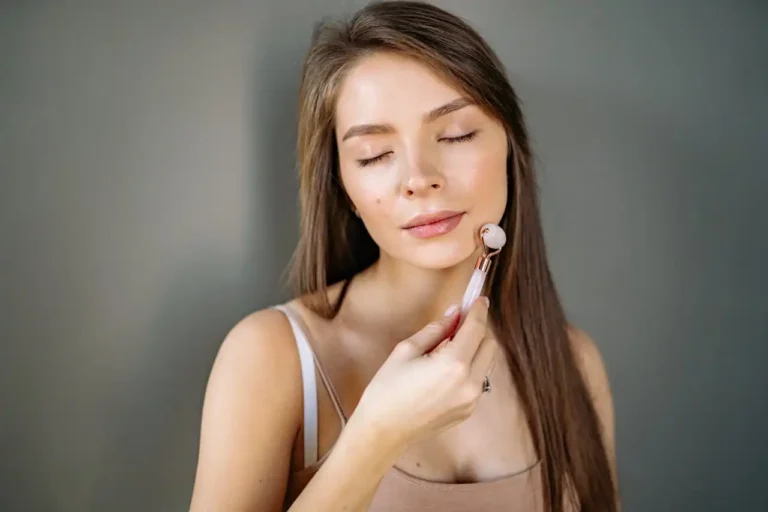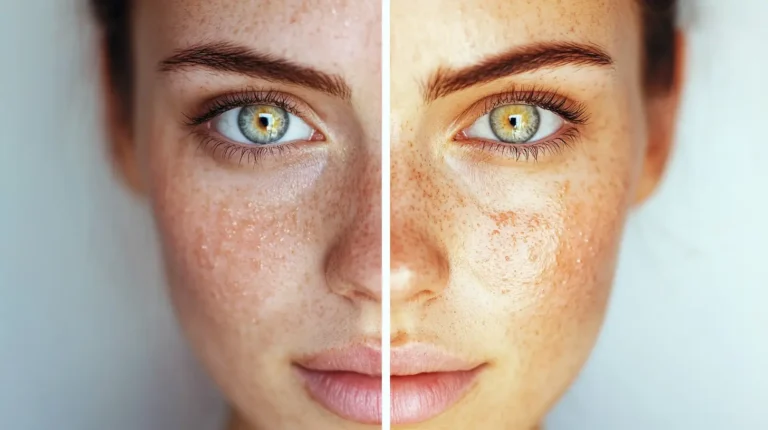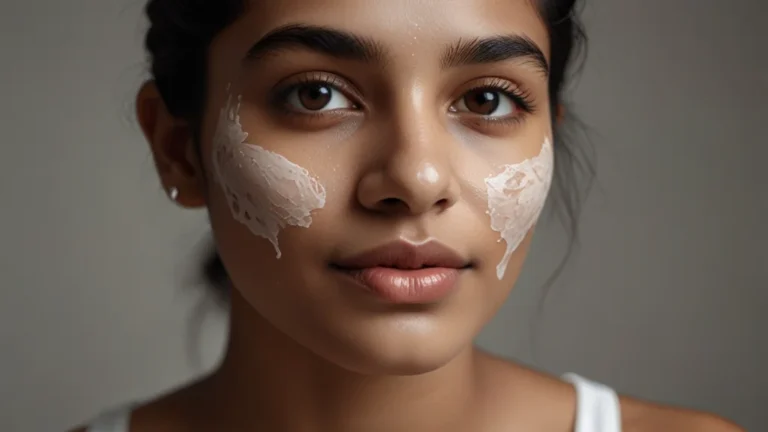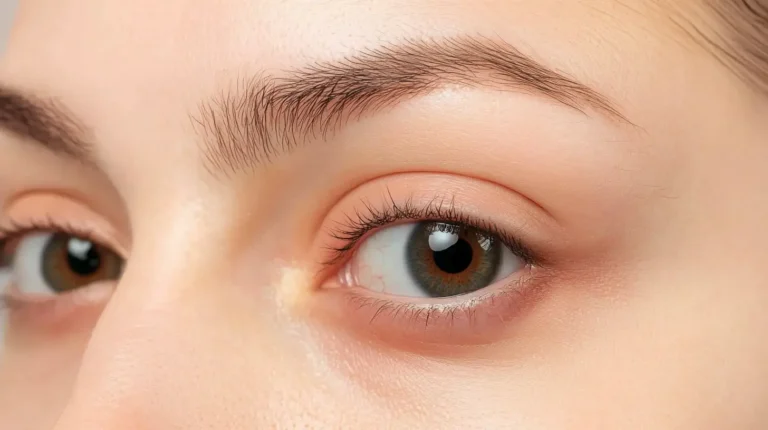7 Remedies for Glowing Skin: Natural Solutions for a Radiant Complexion
Glowing skin is a sign of health and beauty.
Many want to achieve this radiant look without harsh chemicals or expensive treatments.
You can get glowing skin at home using simple, natural remedies.
This article will share 7 easy ways to boost your skin’s natural glow using items you may already have in your kitchen.
1: Aloe Vera Gel

Aloe vera gel is great for your skin. It has vitamins A, C, and E that help keep your skin healthy.
You can use fresh aloe gel from the plant or buy it at the store. Put it on your face for 15-20 minutes, then rinse off.
Aloe vera soothes irritated skin and can help with acne and sunburn. It also keeps your skin hydrated and glowing.
2: Vitamin C Serum

Vitamin C serum is a great way to get glowing skin.
You can make it at home or buy it from stores. It helps brighten your skin and fade dark spots.
To make your own, mix vitamin C powder with water and glycerin. Add a few drops of vitamin E oil for extra benefits. Apply it at night after washing your face.
3: Argan Oil

Argan oil can give you glowing skin naturally. It contains vitamin E and fatty acids that moisturize and nourish your skin.
Apply a few drops to your face before bed. Gently massage it in. You’ll wake up with softer, more radiant skin.
You can also mix argan oil into your regular moisturizer for an extra boost. It works well for all skin types.
4: Retinol Cream

Retinol cream can help you achieve glowing skin. It works for all skin types and addresses many concerns.
This powerful ingredient tackles wrinkles, uneven skin tone, and dryness. It also helps fade dark spots from sun damage.
Start with a gentle retinol product if you’re new to it.
Apply it at night for best results. Your skin will look fresher and more youthful with regular use.
5: Green Tea Toner

Green tea toner can help your skin glow. It removes dirt and oil while balancing your skin’s pH.
To make it, brew green tea and let it cool. Apply it to your face with a cotton pad after cleansing.
This natural toner fights acne and calms inflammation. It’s gentle enough to use daily for healthier-looking skin.
6: Hyaluronic Acid
Hyaluronic acid is a great way to get glowing skin.
It helps your skin hold onto water, making it look plump and fresh.
You can find hyaluronic acid in many skincare products. Look for serums or moisturizers that have it listed as an ingredient.
Using hyaluronic acid can help your skin heal faster, too. It’s good for treating dry or damaged skin.
7: Rosehip Seed Oil

Rosehip seed oil can give you glowing skin. It’s packed with vitamins A and C, which help your skin look brighter.
These vitamins also boost cell turnover, replacing old skin cells with new ones.
The oil has fatty acids that keep your skin moisturized.
It can help fade scars and even out your skin tone. You can apply a few drops to your face at night for best results.
Understanding Skin Health

Healthy skin looks radiant and glowing. Skin health depends on many factors, both internal and external. Good habits and care make a big difference.
Factors Influencing Skin Radiance
Your skin’s glow comes from its overall health. Hydration plays a key role.
Drink enough water each day to keep skin cells plump and bright.
Sleep is also crucial. During sleep, your skin repairs itself. Aim for 7-9 hours nightly.
Stress can dull your skin. Try relaxation techniques like deep breathing or meditation.
Sun protection is vital. Use SPF daily to prevent damage and premature aging.
Regular cleansing and exfoliation remove dead cells. This reveals fresher skin underneath.
Role of Nutrition in Skin Glow
What you eat shows on your skin. A balanced diet rich in vitamins and minerals supports skin health.
Vitamin C helps make collagen. It’s found in citrus fruits, berries, and leafy greens.
Omega-3 fatty acids fight inflammation. Eat fish, walnuts, and flaxseeds.
Antioxidants protect skin cells. Colorful fruits and vegetables are excellent sources.
Stay away from processed foods and excess sugar. They can lead to breakouts and dull skin.
Drink green tea for a boost of skin-friendly compounds.
Natural Ingredients for Skin Care
Natural ingredients offer many benefits for skin health and glow.
They can nourish, hydrate, and protect your skin without harsh chemicals.
Benefits of Antioxidants
Antioxidants fight skin damage from free radicals. They help slow aging and protect against sun damage.
Some top antioxidant-rich ingredients for the skin include:
- Vitamin C: Brightens skin and boosts collagen
- Green tea: Reduces inflammation and redness
- Vitamin E: Moisturizes and heals skin
Try mixing a few drops of vitamin C serum into your moisturizer. Or brew green tea, let it cool, and use it as a toner.
Importance of Hydration
Well-hydrated skin looks plump and glowing. Natural hydrators lock in moisture and strengthen your skin barrier.
Some tremendous natural moisturizers are:
- Aloe vera: Soothes and hydrates
- Hyaluronic acid: Holds water in the skin
- Coconut oil: Nourishes dry skin
Apply aloe vera gel after sun exposure to calm the skin. Add a hyaluronic acid serum under your moisturizer for extra hydration. Use coconut oil as an overnight mask for dry skin.
Lifestyle Changes for Healthy Skin
Making small changes to your daily habits can significantly impact your skin’s health and appearance. Two key areas to focus on are sleep and exercise.
Impact of Sleep on Skin
Getting enough sleep is vital for skin health. Aim for 7-9 hours of quality sleep each night.
During sleep, your body repairs skin cells and boosts collagen production. This helps reduce wrinkles and improve skin tone.
Create a relaxing bedtime routine to help you wind down.
Keep your bedroom cool and dark. Avoid screens for at least an hour before bed. The blue light from devices can disrupt your sleep cycle.
Use a silk or satin pillowcase to reduce friction on your skin. This can help prevent wrinkles and keep your skin smooth.
Exercise and Its Benefits
Regular exercise improves blood flow.
This nourishes skin cells and helps remove toxins. Increased circulation also delivers oxygen to your skin.
Aim for at least 30 minutes of moderate exercise most days of the week.
Choose activities you enjoy, like brisk walking, swimming, or cycling. Yoga can be great for the skin, too. It reduces stress, which can help prevent breakouts.
Remember to cleanse your face after working out. Sweat can clog pores if left on the skin. Drink plenty of water before, during, and after exercise to keep your skin hydrated.







